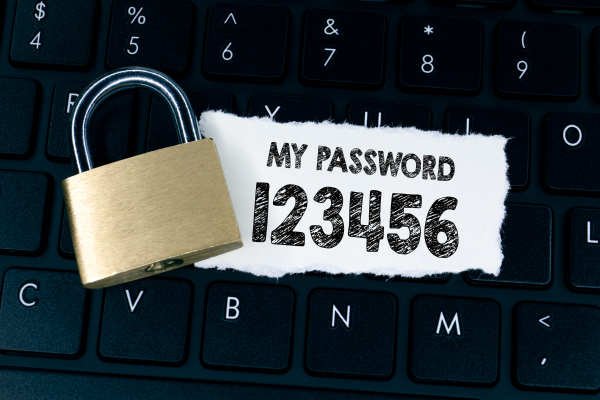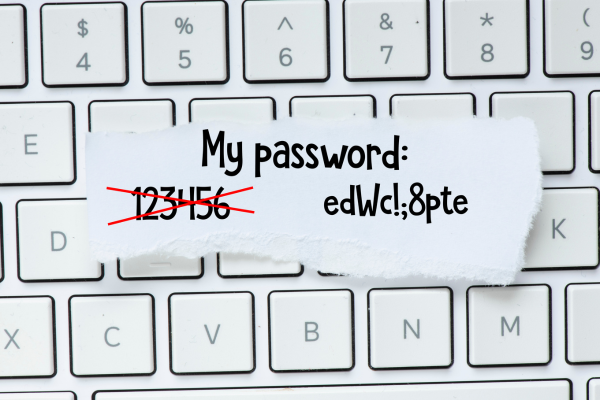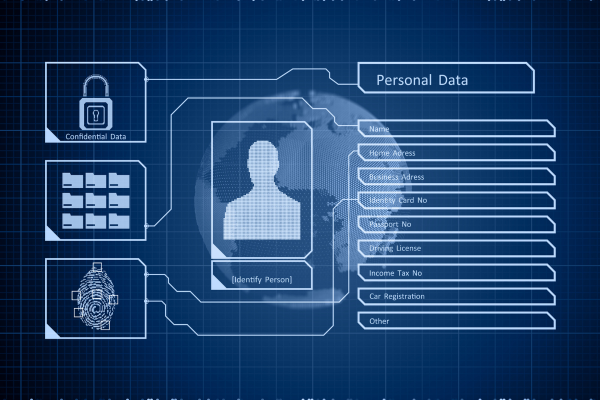The Worst Passwords of 2024 and Tips for Better Password Security
Did you know that in 2024, over 100,000 people still use "123456" as their password? It's shocking but true! This simple password leaves their online accounts wide open to hackers.
Even though we hear about data breaches and online theft all the time, many people still choose easy-to-guess passwords. They choose convenience over safety. This puts their personal information at risk. And, if they use weak passwords for work accounts, their employer’s data is in jeopardy too.
In this blog post, we'll look at the worst passwords of 2024. We'll see why people keep using them and learn how to make stronger passwords. Get ready to be surprised by how simple some of these passwords are!
By the end of this article, you'll understand why good passwords matter and how to protect yourself online. Let's dive in and explore the world of bad passwords!
Protect your team’s critical accounts with TeamPassword, the easiest password manager on the market. Sign up today for a free 14-day trial and experience the peace of mind that comes with proper password security.
Table of Contents
Worst Passwords of 2024
Without further ado, here is a list of 50 of the worst passwords of 2024:
1. 123456
2. password
3. 12345
4. 12345678
5. qwerty
6. 123456789
7. 1234
8. 111111
9. 1234567
10. abc123
11. iloveyou
12. admin
13. welcome
14. monkey
15. login
16. qwerty123
17. dragon
18. master
19. sunshine
20. ashley
21. bailey
22. passw0rd
23. shadow
24. 123123
25. 654321
26. superman
27. qazwsx
28. michael
29. football
30. baseball
31. princess
32. 123456a
33. 1q2w3e
34. letmein
35. trustno1
36. 666666
37. qwerty1
38. 1234567890
39. 123qwe
40. zxcvbnm
41. 000000
42. 1q2w3e4r
43. password1
44. 1234qwer
45. 123321
46. qwertyuiop
47. 987654321
48. myspace1
49. fuckyou
50. 123abc
This list is compiled from the most frequently used and easily guessable passwords found in data breaches and dark web listings.
It's important to note that using any of these passwords puts your accounts at significant risk of being hacked. To improve your online security, use unique, complex passwords for each account and consider using a password manager to help generate and store secure passwords.
To secure your team's passwords and streamline your password management process, try TeamPassword's free 14-day trial. With advanced encryption, secure sharing features, and an easy-to-use interface, TeamPassword offers a robust solution for businesses of all sizes. Sign up today and experience the peace of mind that comes with proper password security.
What Makes a Bad Password?
Passwords play a crucial role in securing our digital presence, but not all passwords offer the same level of protection. When it comes to protecting your online accounts, understanding what makes a bad password is key to strengthening your defenses against cyber threats.
Simple
One of the primary characteristics of a bad password is simplicity. Passwords that rely on basic sequences like "123456" or "abcdef" are easily guessed by automated programs used by hackers. Avoid using sequential numbers or letters, as they provide little resistance to brute-force attacks.
Common
Another red flag for weak passwords is their commonality. Frequently used passwords such as "password" or "qwerty" are among the first choices attempted by cybercriminals. By opting for popular passwords, you inadvertently make it easier for malicious actors to breach your accounts.
Personal Information
Using personal information like your name, birthdate, or address as part of your password poses a significant security risk. Hackers can gather this data from social media profiles or public records, making it relatively simple for them to crack your password and access sensitive information. Avoid incorporating easily accessible personal details into your passwords.
To keep your online accounts safe, it's important to avoid using easy-to-guess passwords. Passwords that are short, common words, or based on personal information are not secure. Instead, you should use passwords that are long (at least 12 characters) and complex, with a mix of uppercase and lowercase letters, numbers, and special symbols.
The strength of your password is key to protecting your digital information from hackers and cybercriminals.
What Makes a Good Password?
Having a strong password is crucial in safeguarding your online accounts against potential cyber threats. The characteristics that make a good password are complexity, length, and unpredictability.
Complexity
A good password should be complex, combining a variety of characters such as uppercase letters, lowercase letters, numbers, and special symbols. Avoid using simple phrases or sequential patterns that are easy to guess. For example, "P@ssw0rd!" is a stronger password than "password123."
Length
The length of a password plays a significant role in its strength. Longer passwords are generally more secure as they provide a larger combination of characters, making them harder to crack through brute-force attacks. To enhance security, aim for a minimum of 12 characters in your passwords, but the longer, the better!
Unpredictability
A good password should be unpredictable, meaning it should not contain easily accessible personal information like birthdays, family members' names, or common words related to your interests. These things can often easily be found on individual’s social media accounts. Each password you use should also be unique, meaning that you haven’t used it before. Creating a password that is unique and unrelated to your personal life adds a crucial extra layer of protection.
By incorporating these elements of complexity, length, and unpredictability into your passwords, you can significantly improve the security of your online accounts and reduce the risk of unauthorized access. Remember, a strong password is your first line of defense in the digital world.
Tips to Improve Password Security
Ensuring strong password security is paramount in today's digital landscape, where cyber threats are becoming increasingly sophisticated. By implementing the following tips, you can significantly enhance your online security posture:
Use a Password Manager
One of the most effective ways to manage multiple complex passwords is by using a password manager. These tools securely store all your passwords in an encrypted vault, requiring you to only remember one master password. Password managers also generate strong, unique passwords for each of your accounts, reducing the risk of a data breach if one account is compromised.
Implement Two-Factor Authentication (2FA)
Two-factor authentication adds an extra layer of security beyond just a password. With 2FA, users must provide a second form of verification, such as a code sent to their smartphone or biometric data, before gaining access to their accounts. This additional step significantly reduces the chances of unauthorized access, even if your password is compromised.
Regularly Update Your Passwords
Frequent password changes are crucial to keeping your accounts safe. Regularly updating your passwords helps mitigate the risk of old passwords being exposed in data breaches or through phishing attacks. Aim to change your passwords at least every three to six months, especially for sensitive accounts like banking or email.
By building these best practices into your password security strategy, you can strengthen your defenses against cyber threats and protect your valuable information. Remember, proactive measures today can prevent potential security headaches tomorrow.
Protect Your Online Life With Strong Passwords
In today's digital landscape, the importance of strong password security cannot be overstated. The annual list of worst passwords serves as a reminder of the vulnerabilities present in online accounts. Understanding what makes a good password - complexity, length, and unpredictability - is crucial for strengthening digital defenses. By contrast, weak passwords that are simple, common, or based on personal information pose significant risks. To stay safe online, it's important to use a password manager, turn on two-factor authentication, and change your passwords regularly. These steps can help protect you from hackers and other online dangers.
We all need to be careful about our online safety, especially when it comes to passwords. A strong password is like a strong lock on your front door - it keeps the bad guys out. It's important to stay alert and learn about new ways to stay safe online. The internet can be dangerous, but if we're careful, we can protect ourselves and others. Your online safety is worth the extra effort.
Ready to protect your team? Sign up for a free 14-day trial today and sleep easy knowing your organization’s data is safe. TeamPassword is more than just a security tool that stores login details and other sensitive information, it’s also a productivity tool giving your team the access they need, when they need it. Take the first step towards stronger password security and easier password management - try TeamPassword now.
Enhance your password security
The best software to generate and have your passwords managed correctly.


